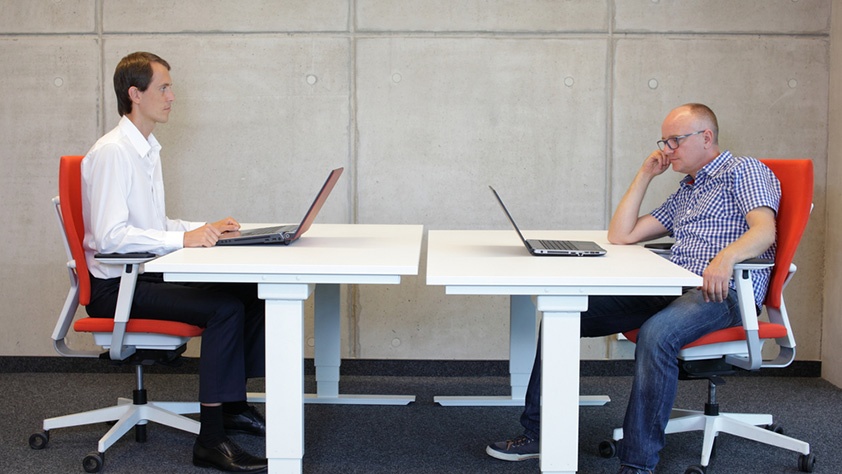 I love it when talent advisors and HR practitioners exclaim they’re in the field because “I love people!” It becomes interesting when you ask, “Does that mean EVERYONE?” Then you hear the awkward pause as someone comes to mind who makes them eat their words. Don’t get me wrong — I think HR should love all people, but we’ve all made decisions about hiring someone that unexpectedly went wrong.
I love it when talent advisors and HR practitioners exclaim they’re in the field because “I love people!” It becomes interesting when you ask, “Does that mean EVERYONE?” Then you hear the awkward pause as someone comes to mind who makes them eat their words. Don’t get me wrong — I think HR should love all people, but we’ve all made decisions about hiring someone that unexpectedly went wrong.
The challenge in recruiting, sourcing and hiring people for your company is that you want a “win” every time. It’s a great goal to have, and one you shouldn’t step back from. The reality is that we’ve all made a “bad hire” before, and the impact of those decisions is far-reaching — particularly in a small business.
Though I don’t think anyone ever intends to have a bad hire, it happens. But have you ever stepped back to see what the real cost is in those hires that go south? There are tangible dollars and cents that can be calculated, but even more costs come along with a person who doesn’t work out. In a small business, this is magnified because there are fewer employees who make up an organization. If it’s not addressed, it can be crippling in many ways.
Here are the top five costs of making a bad hire you are sure to see:
-
Daily impact on employees.
It goes beyond the immediate department in which employees work. While that particular department may see a more pronounced negative effect, the impact of even one bad hire can send shock waves throughout the culture of your entire company. Having this bad hire continue in their ways will eat away at the daily experience your employees encounter.
-
Loss of retention.
People don’t normally think about this aspect of a bad hire, but your performers may leave your company if they feel this is the type of person you’re willing to bring on to work with them. I’m not talking about someone who is simply a “bad fit,” because they may be able to find another role in your organization. I’m talking about someone who just doesn’t do the job well overall.
-
We become jaded.
Once we have our focus turned and we look at the negative side of employees, it becomes ingrained in how we lead. We tend to become disheartened after a bad hire experience, and we think everyone we bring in after them will also fail. It just isn’t true, but the pendulum of negativity is hard to swing back to being positive and confident once we go down that road.
-
Hiring managers question our ability.
The relationship between HR and hiring managers is only as good as the last hire you had. That may not seem fair, but it’s a reality. While this reality can be a factor that helps build your relationship, one bad hire can make things extremely tenuous. It’s a real challenge.
-
The cost of hire becomes a barrier.
HR is already seen as a cost center in organizations. It is a facet of who we are and what we do, but when bad hires happen, that cost is put into the spotlight. The implications of this are more serious than tangible costs alone; making bad hires can affect our reputations and be a deterrent to all the good work we regularly provide.
Don’t: be freaked out about these hidden costs. Do: Reflect on how deeply a bad hire can cost you personally and as an organization. When you do this, you’ll step back and be diligent in doing your best so this rarely happens. Your decisions have both short-term and long-term implications, so make your hires count.
Image: © Marcin Balcerzak - shutterstock.com
Leave a Comment